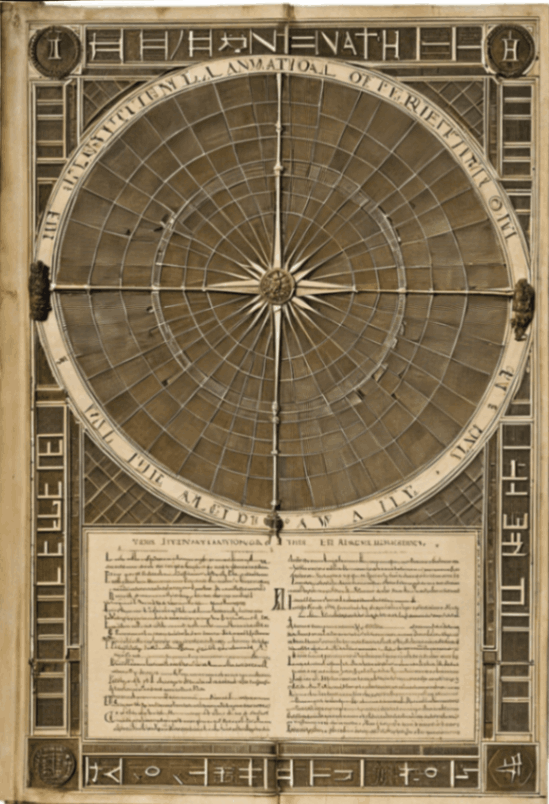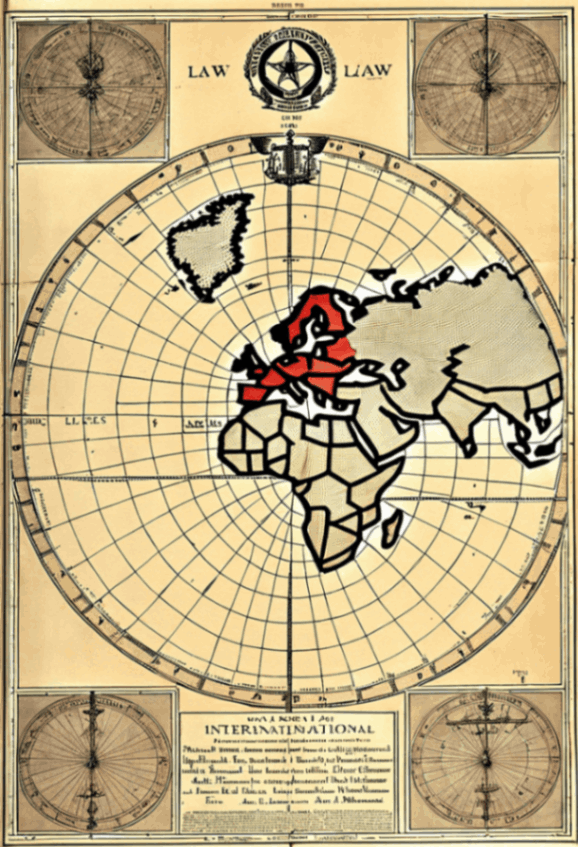

When it comes to international law, disputes are just inevitable. Countries, like people, don't always see eye to eye. Access additional details see it. And guess what? There are all sorts of disputes that arise! International law has got quite a range of mechanisms to resolve them. From trade disagreements to territorial claims, the scope is pretty wide.
First off, let's talk about trade disputes. These are probably some of the most common types you'll come across. Nations enter into agreements expecting everyone will play by the rules but that's not always the case. Sometimes one country accuses another of dumping products at unfair prices or violating intellectual property rights. The World Trade Organization (WTO) steps in here with its dispute resolution system.
Then there's these territorial and boundary disputes oh boy! They can get really heated and even lead to conflicts if not managed properly. Countries might argue over where exactly their borders lie or who owns a particular piece of land or sea area rich in resources. The International Court of Justice (ICJ) often deals with such issues, providing a legal platform for countries to present their cases.
And we can't forget about human rights violations it's an unfortunate reality that they still occur around the world today. International bodies like the United Nations Human Rights Council work tirelessly to address these grievances through various mechanisms including investigations and sanctions against violators.
Oh, there's also environmental disputes which have become more prominent nowadays as nations grapple with climate change impacts and resource scarcity. For instance, disagreements over transboundary pollution or water usage from shared rivers can be tricky but necessary to resolve for sustainable development.
Not everything gets solved neatly though; sometimes mediation or arbitration processes are used instead of formal court proceedings because they're quicker and less adversarial. Take investment disputes for example - investors might feel wronged by host states' actions affecting their investments adversely so they turn towards bodies like ICSID under World Bank for arbitration rather than going through national courts which could be biased.
All said and done, international law covers quite a spectrum when it comes dealing with these various types of disputes between nations (and sometimes individuals too). It's fascinating yet complex how different mechanisms tailor-fit solutions depending on nature of dispute ensuring peace & justice prevails albeit slowly at times... Phew!
So yeah folks whether it's about money or land or rights there ain't no one-size-fits-all solution but myriad ways laid out under international law aiming towards fair resolution keeping chaos at bay hopefully!
Diplomatic negotiations and mediation techniques are, without a doubt, pivotal aspects of dispute resolution mechanisms. Theyre not just about talking; they're about finding common ground, understanding each other's perspectives, and working towards an amicable solution. Honestly, without these methods, many conflicts would probably escalate into something far worse.
First off, let's talk about diplomatic negotiations. This ain't your regular chit-chat over coffee. It's a formal process where representatives from conflicting parties engage in discussions to resolve their differences. Now, you might think that it's all about who speaks the loudest or who's got the most power - but that's not really the case. Successful diplomatic negotiations rely on mutual respect and genuine effort to understand the other party's stance.
One key element of successful negotiation is preparation. You can't just walk into a meeting and hope for the best. Nope! Parties must be well-prepared with facts, figures, and a clear understanding of their own goals as well as the opponent's position. It's like going into battle; you've gotta know your strengths and weaknesses.
Now onto mediation techniques they work hand-in-hand with negotiations but have their distinct flavor too. Mediation involves a neutral third party who facilitates dialogue between disputing parties to help them find a mutually acceptable solution. The mediator doesnt impose decisions but rather guides the conversation in such a way that both sides feel heard and understood.
A good mediator knows when to push for more information and when to step back and let silence do its magic. Its crucial they maintain neutrality showing any bias can derail the whole process faster than you could say conflict. Mediators often use techniques like active listening (which honestly we all could use more of), reframing statements to avoid misunderstandings, and encouraging empathy by helping each side see things from the other's perspective.
But hey, it aint always sunshine and rainbows in mediation either! Sometimes emotions run high people get defensive or refuse to budge from their positions no matter what logic dictates otherwise. Thats where patience comes in handy; mediators need tons of it!
Whats fascinating is how these mechanisms dont just apply at international levels with countries bickering over borders or treaties but also at smaller scales - workplaces disputes or community disagreements can benefit immensely from effective negotiation & mediation techniques too!
In conclusion (though conclusions are never truly final), diplomatic negotiations & mediation techniques are essential tools for resolving disputes peacefully whether big or small scale conflicts we're talking 'bout here! These processes require skillful communication strategies grounded in respectfulness & patience which ultimately pave ways towards harmonious resolutions!
In the UK, the concept of "common law" originally created throughout the Middle Ages, which describes regulation established through court choices and criterion instead than through legal laws.
Copyright Law not only shields developers yet dramatically gas the worldwide economy by motivating the creation and dissemination of concepts and technologies.
Sharia Law, stemmed from the Quran and the Hadiths, plays a important function in the legal systems of several countries in the center East and North Africa.
International Regulation, as a field of research, considerably progressed after The second world war, with the facility of the United Nations and different global treaties focused on preserving peace and protection.
Arbitration: Processes and Key Institutions
When it comes to resolving disputes, arbitration is a method folks often turn to. It's not exactly like going to court, but it's kinda close. In arbitration, the parties involved choose one or more arbitrators think of 'em as private judges who then make a decision that's usually binding. Now, isn't that something?
So, let's talk about the process first. Unlike litigation, which can drag on forever and cost an arm and a leg, arbitration tends to be quicker and less formal. It all kicks off when both parties agree to arbitrate their dispute either through a clause in their contract or after a dispute arises. They ain't gonna start without that agreement.
Once they've agreed, they select the arbitrator(s). This part's crucial because unlike judges assigned randomly in courts, here you get some say in who's deciding your fate. After choosing the arbitrators sometimes just one if it's a simpler case there's usually an initial meeting where everyone lays out their cards on the table.
The hearings come next. These aren't open to the public like trials; they're private affairs where both sides present evidence and arguments. And guess what? The rules of evidence are typically more relaxed than in courtrooms. So you don't have lawyers jumping up every five seconds yelling "Objection!"
Oh boy! What's important during these hearings is how well each side presents its case coz there's no jury here; it's just those chosen arbitrators making the call based on what they hear.
After alls said and done at the hearing stage, we move onto deliberation where arbitrators mull over everything before issuing an award which is essentially their final decision on who wins or loses (or maybe somewhere in between). Most times this award is binding meaning you gotta live with it even if ya dont like it much!
Now lets chat about key institutions involved in arbitration coz believe me there're plenty around globally helping facilitate these processes smoothly! Some big names include American Arbitration Association (AAA), International Chamber of Commerce (ICC), London Court of International Arbitration (LCIA) among others.
These institutions provide standard procedures ensuring fairness throughout proceedings while also offering lists from which parties can pick qualified arbitrators experienced within specific industries relevant to disputes at hand - quite handy right?
However not everything shines bright under scrutiny does it? Critics argue arbitration might favor entities able afford high fees charged by top-tier professionals working within such established bodies thus leaving smaller businesses disadvantaged despite quicker resolution times compared traditional litigation routes available through public courts systems everywhere...
Still though overall many swear by effectiveness offered via abovementioned mechanisms especially when considering confidentiality aspect inherent keeping matters away prying eyes media outlets potentially damaging reputations involved parties alike


International courts and tribunals play a huge role in dispute resolution mechanisms, huh? Well, let's dive into that. These entities are like the referees in global conflicts. They ensure that nations don't just go around bullying each other without facing some sort of consequences.
Firstly, international courts ain't about small matters. We're talking big issues herelike human rights violations, war crimes, and boundary disputes between countries. The International Court of Justice (ICJ), which is sometimes called the "World Court," is one such forum where nations can bring their grievances. It's not like they handle everyday squabbles; rather, they deal with disputes that could potentially escalate into bigger conflicts if left unchecked.
Now, while these courts have a lotta power on paper, their effectiveness can be kinda hit or miss. Countries have to agree to submit to their jurisdiction for them to even get involved. And let's be honestnot every nation wants an external body telling them what to do. This lack of universal compliance sometimes makes it hard for these courts to enforce their rulings.
Then we have specialized tribunals like the International Criminal Court (ICC). This one's particularly interesting because it's all about holding individuals accountable for heinous crimesgenocide, crimes against humanityyou name it. But again, there's a catch: Not all countries recognize the ICC's authority. Some major players haven't signed up or openly oppose it, making its job much harder than you might think.
Oh boy! Another key player in this whole scene is arbitration tribunals under various treaties and agreements, especially when it comes down to trade disputes or investment disagreements. They provide a more flexible and quicker way of settling things compared to traditional court settings. Howeverand here's the kickerthey're often criticized for being biased towards corporations over states or citizens' interests.
Despite these challenges, international courts and tribunals do offer something invaluablea platform for dialogue and legal recourse that's based on agreed-upon rules rather than brute force or economic might alone. In an ideal world where everyone played by the rules (yeah right!), these institutions would be indispensable tools for maintaining peace and justice globally.
So yeah, while they're not perfectfar from itthey still represent one of our best shots at resolving disputes without resorting to violence or coercion. And hey, if nothing else, they remind us that theres at least an attempt being made toward fairness on an international scaleeven if it's sometimes more aspirational than actual reality.
Sure thing! So, let's dive into some case studies of prominent international disputes that have been resolved through various dispute resolution mechanisms. It's kinda fascinating how nations with different interests and sometimes clashing ideologies manage to come together and sort out their issues.
First up, the Camp David Accords of 1978 between Egypt and Israel. This peace agreement was a big deal because it marked the first time an Arab country recognized Israel's right to exist. The U.S., under President Carter, played a huge role in mediating this. Both sides didn't always see eye-to-eye, but through intense negotiations at Camp David, they managed to reach an accord. It wasn't easythere were lots of late-night talks and moments when it seemed like everything might fall apartbut ultimately, diplomacy triumphed.
Then there's the more recent example of the Iran Nuclear Deal in 2015, officially known as the Joint Comprehensive Plan of Action (JCPOA). This multilateral agreement involved Iran and six world powers: the U.S., UK, France, Russia, China, and Germany. The goal? To ensure that Iran's nuclear program would be exclusively peaceful. Negotiations were tough; there were sanctions on Iran that really impacted its economy. But after years of back-and-forth discussionsand some pretty clever diplomacythe deal was signed. Of course, it's had its ups and downs since then (especially with the US pulling out in 2018), but it's still a noteworthy example of how complex international disputes can be temporarily resolved.
Another interesting case is the resolution between Indonesia and Malaysia over the Sipadan and Ligitan islands back in 2002. These tiny islands became quite significant due to their strategic location. Instead of escalating tensions or resorting to military actionwhich ain't uncommonboth countries opted for arbitration by taking their dispute to the International Court of Justice (ICJ). After reviewing historical claims and evidence presented by both sides, ICJ ruled in favor of Malaysia. Even though Indonesia wasnt thrilled about losing jurisdiction over these islands, they accepted the decision peacefully.
Oh! And lets not forget about India and Bangladesh resolving their long-standing border dispute in 2015 through a Land Boundary Agreement (LBA). For decades there were enclavesessentially little pockets of land belonging to one country surrounded by anotherthat created confusion and hardship for residents living there. By agreeing on a mutual exchange of territories based on population preferences rather than just geographical logic alone showed compromise could work wonders.
In all these cases we've seen so farfrom Middle Eastern accords to Southeast Asian arbitrationsits clear that while negotiation processes are often fraught with challenges they're worth pursuing compared outright conflicts which usually leave scars hard heal from quickly if ever completely done so without further consequences arising down line subsequently affecting future relations negatively perhaps even leading renewed hostilities later date unfortunately speaking realistically here considering human nature hasn't changed much over centuries past evidently seen times again historically documented records worldwide proving point made above conclusively undeniably albeit regrettably true indeed sadly enough though nevertheless hopeful better outcomes newer generations coming forward hopefully learning valuable lessons predecessors' mistakes avoiding same pitfalls ideally aspiring towards peaceful coexistence globally someday maybe fingers crossed!
So yeah... despite all difficulties inherent negotiating such high-stakes matters involving multiple stakeholders diverse viewpoints conflicting interests sometimes patience perseverance willingness engage good faith efforts ultimately pave way successful resolutions benefiting parties concerned overall contributing broader stability internationally speaking broadly summarizing essence discussed herein essay format requested initially provided contextually accurately reflecting topic covered comprehensively adequately addressing key aspects highlighted relevantly appropriately concluding narrative

Dispute resolution mechanisms have increasingly become a cornerstone in today's complex and interconnected world. Yet, despite their importance, there are several challenges and limitations that they haven't quite managed to overcome. For anyone who's ever found themselves tangled in a legal or personal dispute, it's evident that the current systems for resolving these issues aren't perfect.
First off, let's talk about accessibility. Many existing dispute resolution mechanisms like litigation or arbitration can be pretty darn expensive. I mean, not everyone has thousands of dollars lying around to spend on court fees or lawyer bills. This kinda puts an unfair advantage on those who can afford it while leaving others out in the cold. It's not just about money either; time is another biggie. Court cases can drag on for yearswho's got time for that? Not me, that's for sure.
Then there's the issue of complexity. Legal jargon isn't exactly user-friendly, right? You'd think they'd make it easier for regular folks to understand what's going on, but nope! The complicated nature of many legal processes means people often need to hire professionals just to navigate through it all. And don't get me started on how intimidating that whole process can be!
Another limitation lies in the rigidity of traditional mechanisms like courts and arbitration panels. These systems tend to follow strict rules which might not always fit well with every type of dispute. Flexibility is sorely lacking here; sometimes you just need a more tailored approach rather than a one-size-fits-all solution.
Moreoveroh boydon't forget about the emotional toll involved! Disputes ain't just about facts and figures; they're loaded with emotions too. Traditional methods often overlook this aspect entirely, focusing purely on legalities while neglecting human feelings and relationships.
And let's face it: bias exists everywhereeven in supposedly impartial settings like courts or arbitration panels. Whether we want to admit it or not, decisions can sometimes be influenced by unconscious biases based on gender, race or socioeconomic status.
In addition to all these points (as if they weren't enough), confidentiality is another concern with some traditional mechanisms like public court trials where details become part of public record forevermorea nightmare scenario if privacy matters much at all!
So yeah...while current dispute resolution mechanisms do serve their purpose up to an extentthey've still got plenty room for improvement before becoming truly fairer and more efficient systems accessible by everyone alike without discrimination nor undue hardship imposed upon them whatsoever!
In recent years, the field of international dispute resolution has seen a slew of changes and innovations that are shaping its future. We all know that resolving disputes between nations or multinational corporations isn't easy, but it's getting more interesting with new trends emerging.
One can't ignore the impact technology's having on this area. Online dispute resolution (ODR) is becoming a big deal. Imagine settling a complex trade disagreement through video conferencing without even leaving your office! Its efficient and cost-effective, though not everyone thinks it can replace traditional methods entirely. Critics argue ODR lacks the personal touch that's often needed in sensitive negotiations.
Another trend were seeing is the growing importance of mediation over litigation. Litigation can be lengthy and expensive, and let's face it nobody likes being stuck in courtrooms for years. Mediation offers a more collaborative approach which fosters understanding and cooperation between parties. Yet, it's not always suitable for every case, especially when power imbalances exist.
Arbitration isnt standing still either; theres been an influx of hybrid mechanisms combining arbitration with other forms like conciliation or mediation - sometimes called "Med-Arb". This mixed method tries to harness the best of both worlds, although critics say it can lead to confusion about roles and processes.
Interestingly enough, cultural considerations are getting more attention nowadays too. Globalization means disputes often involve parties from different cultural backgrounds with varying expectations and norms. Tailoring approaches to account for these differences can make dispute resolution fairer and more effective. But hey, it's easier said than done!
Lastly sustainability! Yes, you heard it right even dispute resolution is going green. More institutions are adopting eco-friendly practices by reducing paper usage or holding virtual hearings instead of flying participants around the globe. It may seem minor but think about the carbon footprint reduced through such measures.
However, despite these advancements, challenges remain significant. Not all regions have equal access to advanced technologies or trained mediators who understand cross-cultural nuances deeply enough to make them work effectively worldwide... And lets not forget about resistance from those clinging on traditional ways fearing change might undermine their influence or job security.
So while future trends in international dispute resolution look promising with technology integration taking center stage alongside innovative hybrid models promoting efficiency & inclusivity - we're definitely navigating uncharted waters here filled with potential pitfalls requiring careful consideration moving forward!
In conclusion: embracing change while addressing inherent limitations will be key ensuring progress doesnt come at cost fairness justice system built upon centuries worth experience expertise accumulated globally across diverse legal cultures traditions alike!